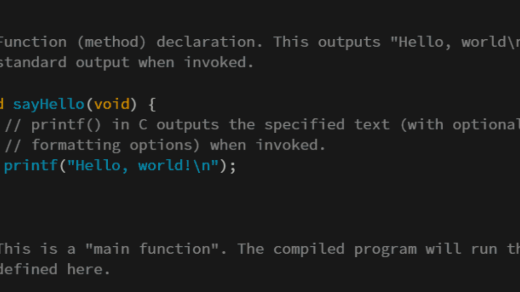Welcome to the ultimate clash of the cloud titans: Cloud Foundry and Kubernetes. In this article, we dive deep into the realm of cloud infrastructure to unravel the differences and similarities between these two powerhouses. So fasten your seatbelts, as we embark on a riveting journey to discover which platform reigns supreme in the battle of Cloud Foundry vs Kubernetes.
Comparison of Cloud Foundry and Kubernetes
Cloud Foundry and Kubernetes are both popular container orchestration platforms that offer different features and functionalities.
Cloud Foundry is a Platform as a Service (PaaS) that provides a high level of abstraction and simplifies the process of deploying and managing applications. It supports multiple programming languages such as Node.js, PHP, Java, Ruby, and Python. It also provides built-in services like databases, caching, and identity management, making it easier for developers to focus on application development rather than infrastructure management.
Kubernetes, on the other hand, is an open-source container orchestration platform that focuses on scalability and flexibility. It is designed to manage and orchestrate containerized applications across a cluster of machines. Kubernetes offers a command-line interface (CLI) and an extensive set of APIs for automation and management of containers. It supports both stateless and stateful applications and provides features like logging, authentication, and routing.
When comparing Cloud Foundry and Kubernetes, it’s important to consider your specific needs and requirements. Cloud Foundry is a great choice if you want a fully managed platform that abstracts away the complexities of infrastructure management. It is well-suited for teams with limited experience in managing infrastructure or for organizations looking to increase productivity by automating the deployment process.
On the other hand, Kubernetes is a more flexible and customizable platform that provides a higher level of control over your infrastructure. It allows you to define and manage your own infrastructure and provides features like scaling, load balancing, and orchestration. Kubernetes is a good choice if you have specific requirements or if you want to leverage the benefits of containerization without being tied to a specific cloud provider.
Exploring Similarities and Differences
Cloud Foundry and Kubernetes are both popular technologies used for managing and deploying applications in the cloud. While they have similar goals, there are some key differences between the two.
One major difference is the level of abstraction they provide. Cloud Foundry is a platform as a service (PaaS) that abstracts away many of the complexities of infrastructure management. It allows developers to focus on writing code and deploying applications without worrying about the underlying infrastructure. Kubernetes, on the other hand, is more of an infrastructure as a service (IaaS) platform that provides a framework for managing containers. It gives developers more control over the underlying infrastructure and allows for greater flexibility.
Another difference is the programming languages they support. Cloud Foundry has broad language support, including popular languages like Java, Node.js, Python, and Ruby. Kubernetes, on the other hand, is language-agnostic and can run applications written in any programming language.
When it comes to scalability and performance, both Cloud Foundry and Kubernetes have robust capabilities. They both support horizontal scaling, allowing applications to handle increased traffic by adding more instances. They also both provide mechanisms for load balancing and automatic scaling.
In terms of ecosystem and community support, Kubernetes has a larger and more active community. It is an open-source project backed by Google and has a wide range of tools and integrations available. Cloud Foundry also has a strong community, but it may have a smaller selection of tools and integrations compared to Kubernetes.
Ultimately, the choice between Cloud Foundry and Kubernetes depends on the specific needs and preferences of your organization. Cloud Foundry provides a higher level of abstraction and simplifies the deployment process, while Kubernetes offers more control and flexibility. Consider factors such as programming language support, scalability requirements, and community support when making your decision.
Migrating from PCF to EKS: Benefits and Considerations
Migrating from PCF to EKS offers several benefits and considerations for businesses.
One major benefit is the flexibility and scalability that EKS provides. With EKS, businesses can easily provision and manage their resources, whether it’s on-premises software or applications in the cloud. EKS also supports a wide range of programming languages, including PHP, Java, Ruby, and Python, making it compatible with various software development needs.
Another advantage of migrating to EKS is the integration with other services and platforms. EKS seamlessly integrates with Amazon Web Services (AWS), allowing businesses to leverage the full potential of AWS’s infrastructure as a service offerings. This integration also provides access to a vast array of tools and services, such as identity management, database solutions, and logging capabilities.
When considering a migration from PCF to EKS, businesses should also take into account the complexity and learning curve associated with the transition. While EKS offers powerful orchestration and automation capabilities, it requires a certain level of experience and familiarity with command-line interfaces and container technologies.
In terms of business value, migrating to EKS can improve productivity and streamline software development processes. The use of containers and container orchestration simplifies deployment and management, allowing developers to focus on coding and innovation. This increased productivity can lead to faster time-to-market and improved customer satisfaction.
Streamlining Development with DevOps Automation
| Feature | Cloud Foundry | Kubernetes |
|---|---|---|
| Container Orchestration | No | Yes |
| Deployment Flexibility | High | High |
| Scalability | High | High |
| Community Support | Large | Large |
| Ease of Use | High | Medium |
| Integration with CI/CD Pipeline | Yes | Yes |
| Managed Services | Yes | No |



